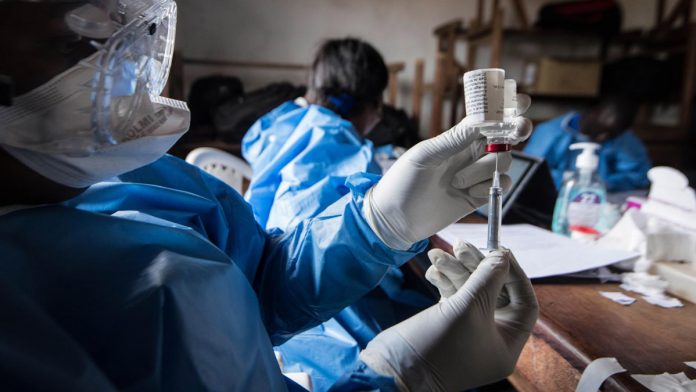PUTRAJAYA – For the time being, only children aged 12 to 17 years old with underlying medical problems will be vaccinated, said National COVID-19 Immunisation Programme (PICK) Coordinating Minister Khairy Jamaluddin.
He said the technical group of the COVID-19 Vaccine Supply Access Guarantee Special Committee (JKJAV) had been directed to compile the latest information on the risks of myocarditis and pericarditis on young people after they are vaccinated.
“We feel that by the time we finish phase three of PICK, we will have enough data to determine whether to proceed with vaccinating children with Pfizer or Sinovac.
“At the moment, it will be given to those with underlying medical conditions involving a small group,” he told a joint press conference with Health Minister Datuk Seri Dr Adham Baba on the progress of the PICK here today.
Dr Adham said vaccination for young people would focus on high-risk categories, namely immunocompromised children, cancer patients and those with chronic lung diseases and comorbidities such as heart disease and diabetes.
He said adolescents who are at higher risk of severe COVID-19 due to chronic underlying medical conditions could benefit from the Pfizer vaccine while the healthy ones who are at very low risk of serious COVID-19 would be offered vaccination at a later stage, taking into consideration the results of an ongoing clinical trial using a lower dosage of the Pfizer vaccine in children.
Asked if the dose given to children and teenagers would be the same as the adults, Dr Adham said experts are still assessing clinical data based on the age of individuals, but he suggested that the dose should be reduced for young people and different from adults.
As of June 29, he said, 116,378 children in Malaysia were confirmed COVID-19 positive and, of those, 37,205 were aged between 13 and 17
New variants
Dr Adham meanwhile said, a total 584 COVID-19 cases in Malaysia were found to due to new variants involving more widespread and faster as well as airborne transmission.
According to him, the new variants were detected through several precautionary measures on the threat of the Delta variant (B1617.2) including genome sequencing following the World Health Organisation (WHO) statement that certain countries were threatened by the new variant.
“We found that there are threats of new variants in our country,” he said in a media conference on the development of the National COVID-19 Immunisation Programme (PICK) with PICK Coordinating Minister Khairy Jamaluddin, here today.
From the 584 cases recorded, 40 cases were of the Delta variant which are said to be aggressive, Beta variant (B.1.351) in 136 cases, Alpha variant (B117) in 10 cases, two cases involving B1525 variant, four cases of B161.7.14 and variants of concern (VOC) amounting to 392 cases, he said.
Dr Adham said the Ministry of Health (MOH) would be carrying out various continuous preventive and control activities among them based on the high incident rate in an area, with cases spreading fast and involving deaths.
“We will create a genome sequence and from there we will know whether an individual got an infection from a new variant,” he said.
“It is also related to the vaccine administered. We have been informed that two doses are basic which should be implemented in the country so that immunisation and resistance against the new variants could be achieved,” said Dr Adham.
On the COVID-19 Vaccine Fund, Dr Adham said the fund has yet not to be utilised.
According to him, a total of 18.6 responses on side effects after immunisation were received through the Mysejahtera application for every 1,000 doses of vaccine dispensed since the beginning of the National COVID-19 Immunisation Programme.
“Pain at the injection site, headache and fatigue are among the side effects that vaccine recipients often experienced,” he said.













